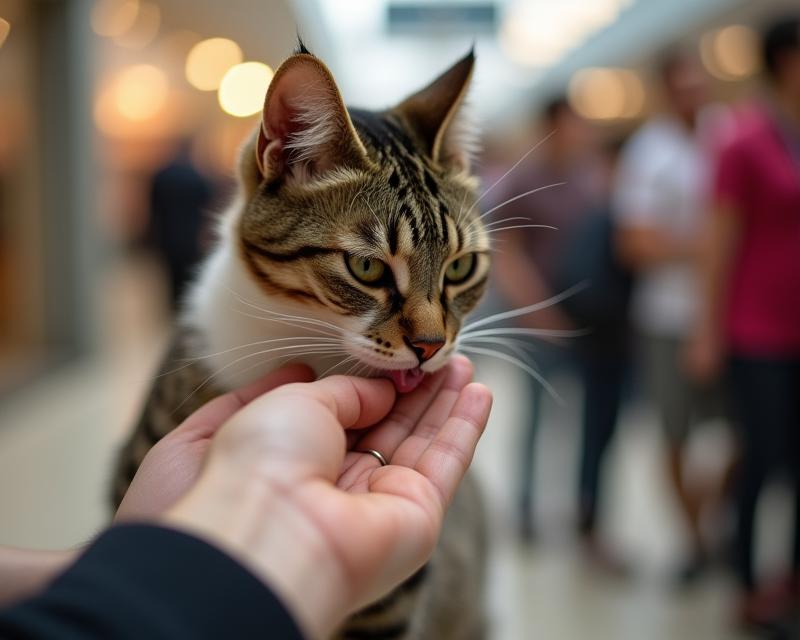Mall Cat's Healing Touch: Why Cats Lick Wounds?
Publish in Health el 28/06/2025 18:48
Why Does My Cat Lick Everything? Understanding Wound Care
Have you ever witnessed your feline friend intently licking a wound – whether it's a minor scrape or something more serious? It's a common behavior, especially during pet-friendly events like those held in shopping malls! While it might seem odd or even concerning, there's usually a perfectly good reason behind this seemingly strange action. Understanding why cats lick wounds can help you stay informed about your cat's health and ensure they get the care they need.

The Instinctive Healing Behavior
Cats are meticulous groomers, and licking is a fundamental part of their self-care routine. But when it comes to wounds, it's more than just cleanliness. Licking has natural antibacterial properties. Saliva contains enzymes that can help break down bacteria and promote healing. Think of it as a natural, albeit sometimes overzealous, form of first aid! This behavior stems from their wild ancestors, where licking helped keep injuries clean and free from infection. It's an ingrained instinct that’s hardwired into their DNA.
When Licking Becomes a Problem
While a little licking is normal, obsessive licking can be a sign of underlying issues. If your cat is constantly licking a wound, causing it to reopen, or showing signs of pain, it's time to consult a veterinarian. Excessive licking can delay healing, introduce new infections, and even cause tissue damage. It's also important to consider *why* the licking is happening. Is the wound itchy? Is your cat stressed or anxious? Sometimes, licking can be a coping mechanism for anxiety or boredom.
What Can You Do?
So, what can you do if your cat is obsessively licking a wound? First, protect the wound! A well-fitting Elizabethan collar (cone) can prevent further licking and allow the wound to heal properly. Second, address any underlying anxiety or stress. Provide plenty of enrichment, playtime, and safe spaces for your cat. Third, keep the wound clean and dry, following your veterinarian's instructions. And finally, don't hesitate to seek professional veterinary advice. They can assess the wound, rule out any complications, and recommend the best course of treatment. Remember, your cat's health is the most important thing!
- Monitor the wound closely for signs of infection (redness, swelling, pus).
- Provide a calming environment for your cat.
- Consult your vet if the licking doesn't improve or worsens.
By understanding this natural behavior and knowing when to intervene, you can help your cat heal properly and stay happy and healthy.





